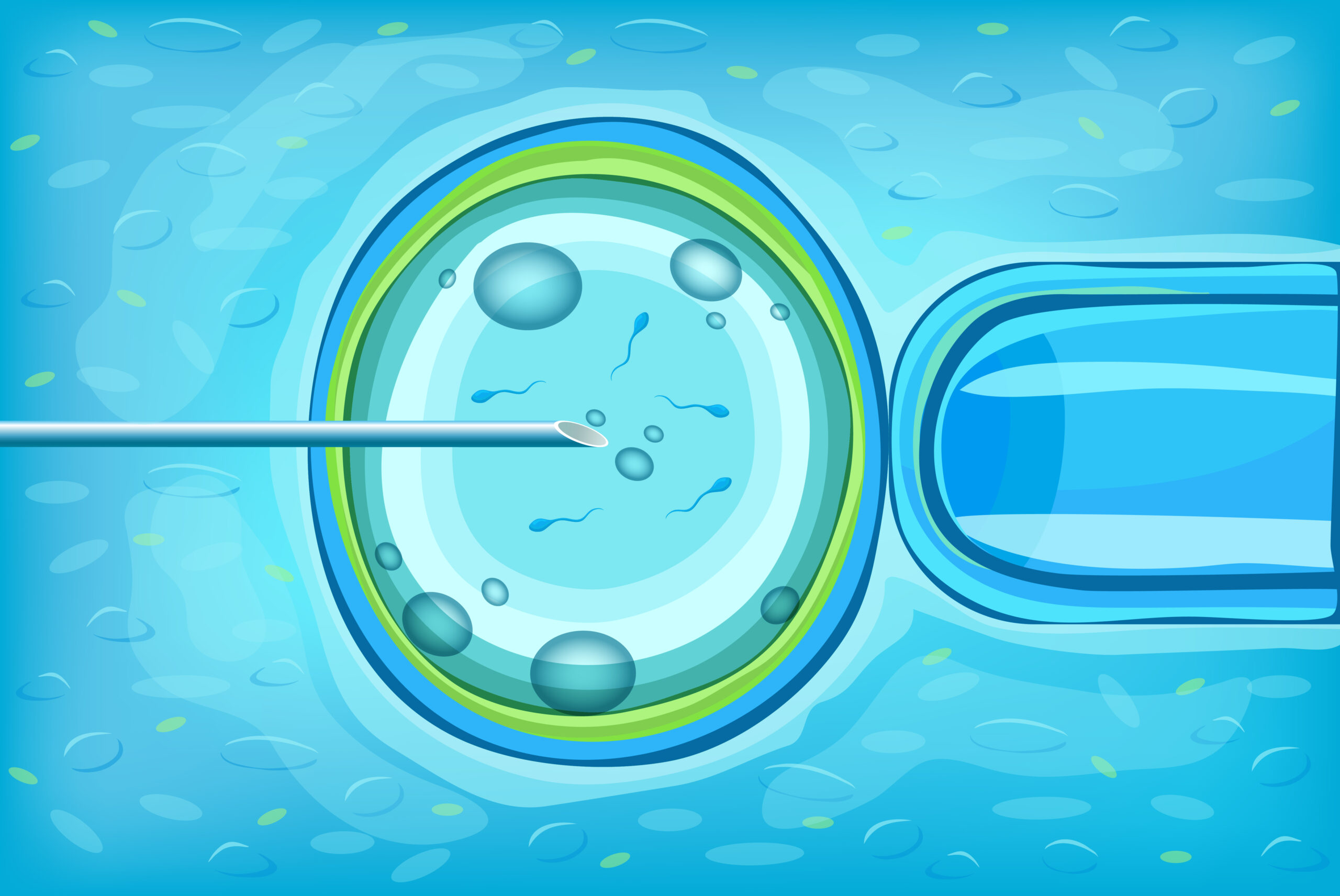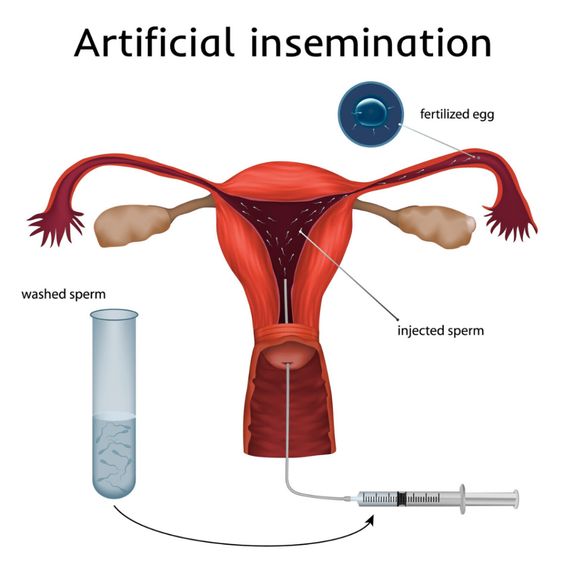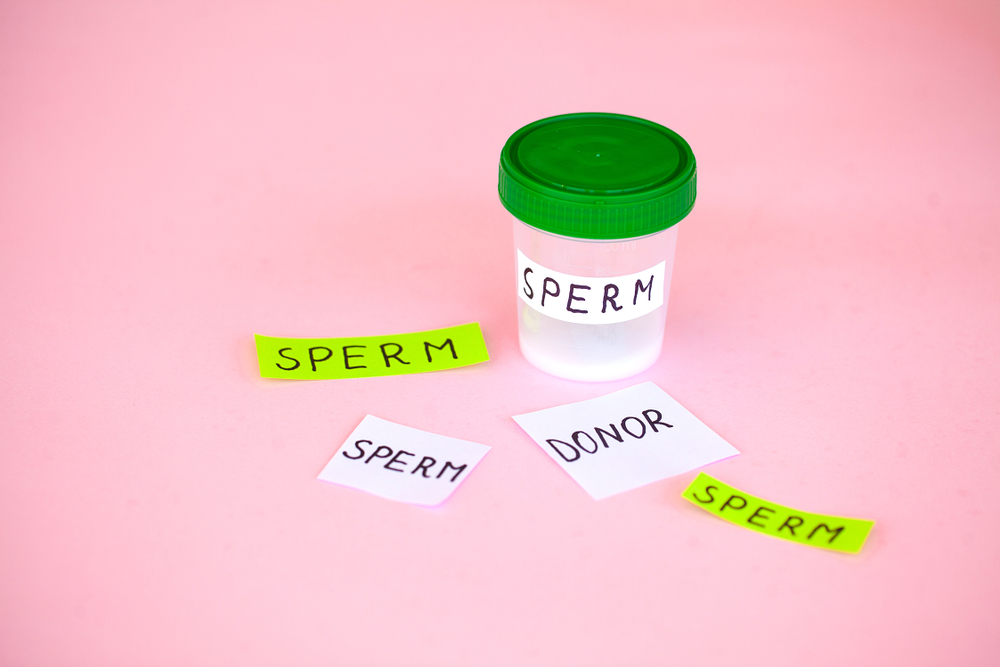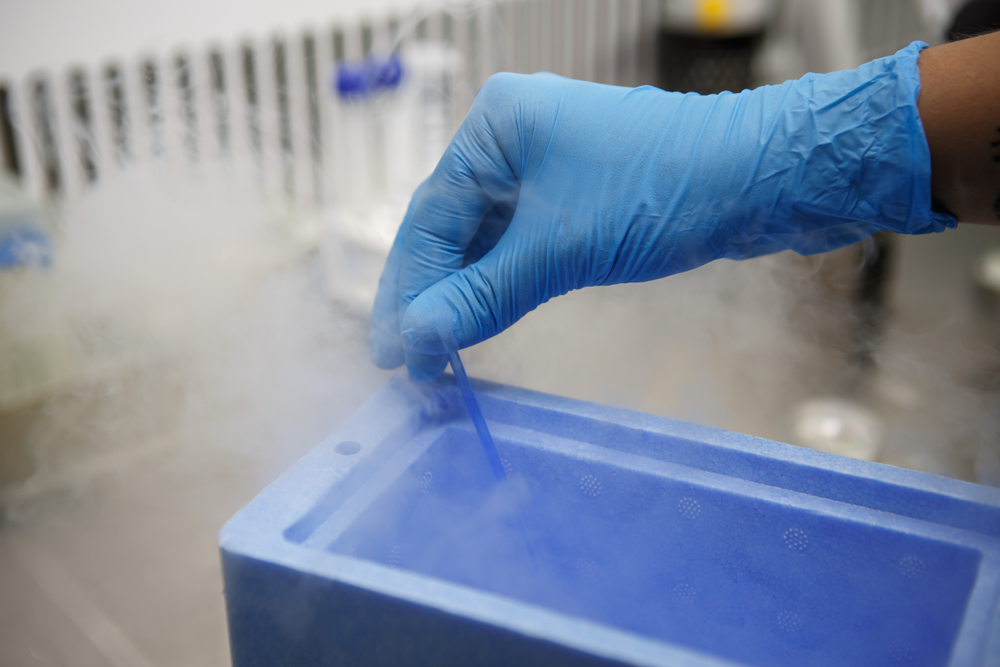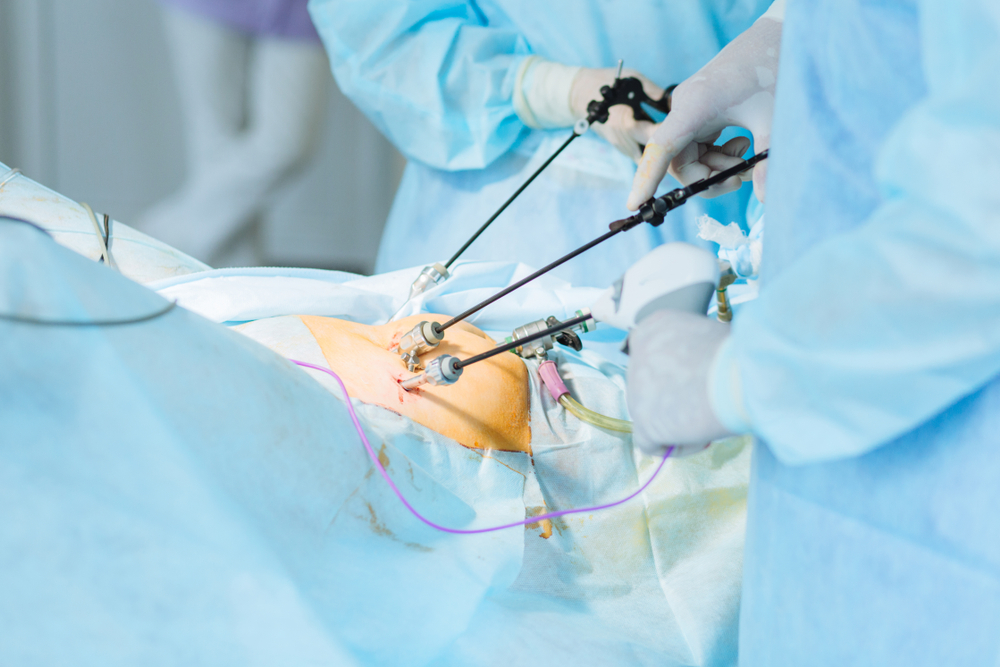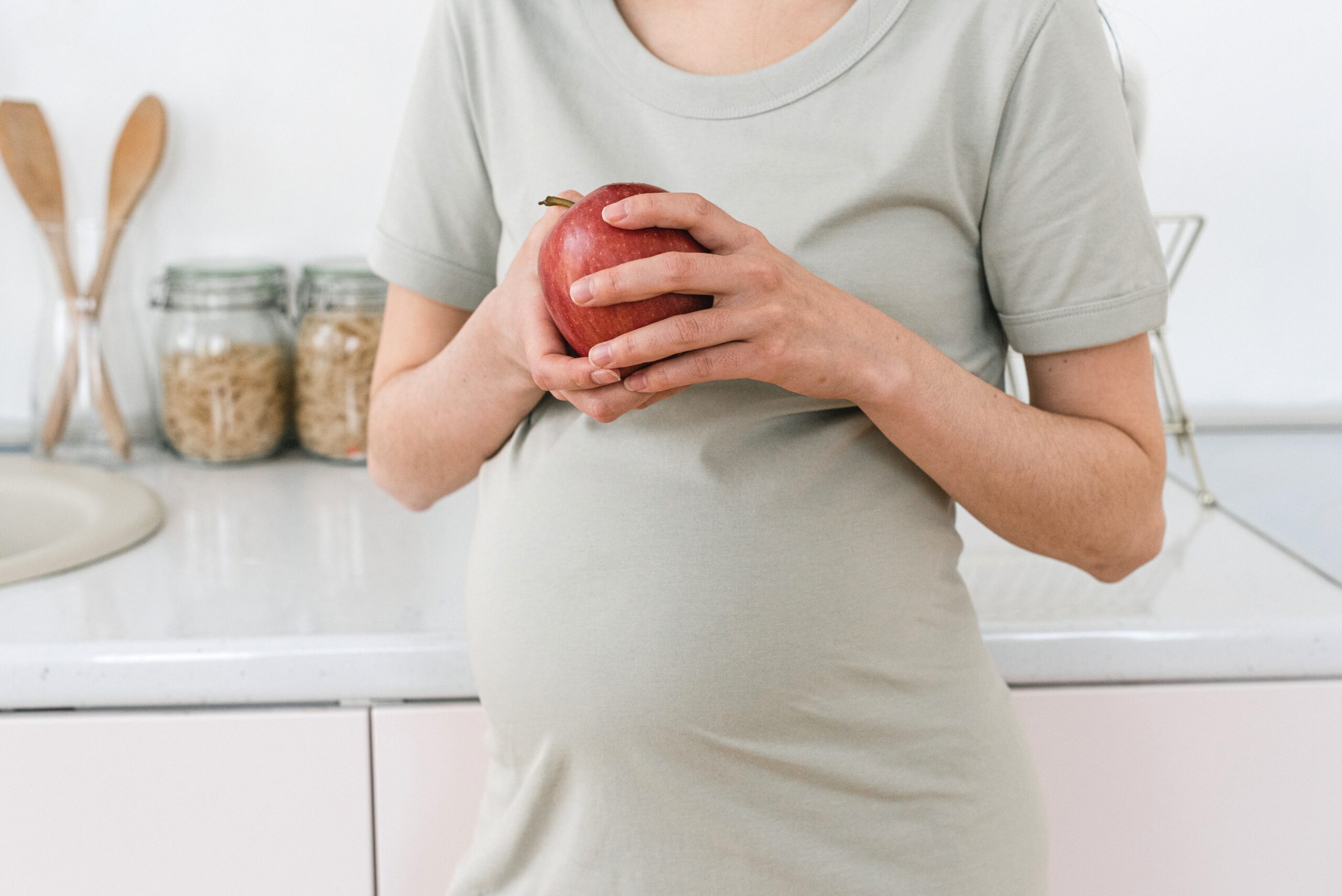






World-Class Technology
We are equipped with all the modern techniques and technologies for infertility treatments. Our top-class IVF lab has recently been upgraded as per the latest international recommendations.

Experienced Doctors & Staff
Dr. Lavleen Sodhi has been running the IVF centre since 2007 & it was the first in the region. With the best team of doctors & staff, we have successfully achieved results at par with the best institutes worldwide.

Patient-Friendly Environment
Dr. Sodhi's Healthcare Multispeciality Hospital and IVF Centre provides the perfect ambience and comfortable environment to all patients. Also, there is complete transparency in the treatment.
Empanelment
Our centre is empaneled with some of the best companies in the country.
- Icici Lombard
- Future Genera
- Med Save
- PARAMOUNT HEALTH CARE
- MEDI ASSIST INDIA
- UNIVERSAL SOMPO
- RELIANCE GENERAL INSURANCE
- BAJAJ ALLIANZ
- STAR HEALTH CARE
- MED HEALTH CLINIC
- MAX BUPA
- ADITYA BIRLA
- AKSHA TPA
- GHPL
- VIDAL HEALTH CARE
- TATA AIA
- FHPL
- KOTAK MAHINDRA
- VIDAL HEALTH CARE
- HDFC ERGO SAFEWAY
- BHARTI AXA
- VIPUL MED CORP
- PARK MEDICLAIM
- TTK
- GHPLTPA
- DHS
- MD INDIA
Why Choose Us
When it comes to your fertility care, you want the best. Dr. Sodhi's Healthcare Multispeciality Hospital and IVF Centre offers the best investigative procedures for infertility in men and women. We are equipped with world-class technology and state-of-the-art infrastructure which caters to infertility treatments like IUI, IVF, ICSI, Sperm donor, Egg Donor, Embryo Freezing, Blastocyst Culture and Transfer, Laparoscopy, Hysteroscopy, and more. In addition to your primary fertility physician, we have put together an integrated support team of experienced nurses, psychologists, and staff who work together to address your physical, emotional, and financial concerns. Choose Dr. Sodhi's Healthcare Multispeciality Hospital and IVF Centre to help build your family!

Dr. Sodhi’s Health Care Multispecialty Hospital & IVF Centre
Dr. Sodhi’s Health Care Multispecialty Hospital & IVF Centre has been running since 2007, employing the latest ‘State of the Art’ technologies for the treatment of infertile couples. The ultra-modern hospital is located in Mohali, a highly progressive township, adjoining Chandigarh.
Dr. LAVLEEN KAUR SODHI
DIRECTOR & Sr. CONSULTANT.
Obstetrician & Gynaecologist, Infertility specialist

Dr. Lavleen Kaur Sodhi is the Director, Sr. Consultant Obstetrician & Gynaecologist and Infertility specialist at Dr Sodhi’s Health Care Multispeciality Hospital & IVF Centre. She is also a visiting consultant at Fortis Hospital, Mohali & Cloud Nine Hospital, Chandigarh. Dr Lavleen Kaur has an illustrious academic record to back her present competencies. She completed her MD in 1995 from the prestigious P.G.I Chandigarh & her D.N.B.E from New Delhi, both in Obstetrics & Gynecology. During her M.B.B.S she also bagged the ‘Silver Medal’ in General Surgery in the final professional examination.
Happy Couples
Our Videos
Blog
 Effects of Alcohol During Pregnancy March 6, 2023
Effects of Alcohol During Pregnancy March 6, 2023Finally, it’s happening! You must be so excited to welcome a little one into your family. And now you must be waiting to give them a hospitable environment in your womb for nine months.
As you do so, remember that it’s important for you to be healthy and happening so your baby can be healthy too. For that, you must eat well, sleep well, and keep your distance from regular alcohol consumption.

Yes, you read that right. Alcohol consumption during pregnancy can cause developmental disabilities, birth defects, and other issues in babies. It can result in Fetal alcohol spectrum disorders, miscarriages, prematurities, etc.
So, it’s strongly recommended not to drink alcohol during pregnancy. There are several other effects related to alcohol and pregnancy. Read through here:
What Happens When You Drink Alcohol During Pregnancy?
Drinking alcohol during pregnancy has negative effects on the baby. When you consume alcohol while pregnant, it travels from your bloodstream to different organs of the baby, including the liver.
However, during the initial stages of pregnancy, a baby’s liver does not develop enough to process the alcohol. Your repeated consumption can eventually affect your baby and cause serious issues with its development.
It can also cause problems after the birth of your baby. So, you must stay skeptical of your alcohol consumption during pregnancy, just as you stay sceptical when it comes to your baby’s first food.
Effects of Alcohol on Pregnancy
Some of the symptoms that you may notice after alcohol consumption (during pregnancy) are related to Fetal Alcohol Syndrome. This includes:
- Behavioural problems
- Attention problems
- Heart defects
- Poor growth/muscle tone
- Balance and movement problem
- Learning issues
- Thinking/speech defect
- Change in facial shape, etc.
In extreme cases, the child may suffer from complications like cerebral palsy. Similarly, you, as the mother, may suffer from premature birth or pregnancy loss.
Is Light Drinking Unsafe for the Baby?
When it comes to alcohol and pregnancy, there is still a lot of debate among doctors. While some healthcare professionals restrict their patients from drinking alcohol completely, others allow occasional light drinking to the patients.
As per a study of 5928 pregnant women, about 19% consumed alcohol occasionally. Meanwhile, 20% of them reported low alcohol consumption, and 15% reported consuming more than seven drinks weekly.
In all these cases, the defects and abnormalities were the same. Similarly, there are several other studies which show little evidence between light drinking and pregnancy defects. So, it’s still confusing. But, it’s best to avoid any form of drinking during pregnancy.
Safe Levels of Alcohol in Pregnancy
One of the most common questions among pregnant women is what are the safe levels of alcohol during pregnancy? The answer is none.
At present, there is no safe amount of alcohol that’s ideal for consumption during pregnancy. Similarly, there is no safe time during pregnancy when you can consume alcohol. As for alcohol varieties, all types of alcohol, including wines and beers, are harmful to the baby. So, if you are wondering about the connection between wine and pregnancy, it’s just like any other alcohol variety.
Alcohol, when consumed during the first three months of the pregnancy, can cause abnormal facial features. However, the child may suffer from central nervous problems and growth issues if the mother consumes alcohol during any month of the pregnancy. So, if you want your baby to be healthy, you must not drink alcohol at all.
How to Stop Drinking Alcohol During Pregnancy?
Now that you understand the consequences of drinking alcohol during pregnancy let’s learn some of the ways by which you can stop consuming it. First things first, you must have the willpower to avoid alcoholic drinks. It could be tough at first, especially if you are too much dependent on it.
But once you find out about your pregnancy, it’s recommended to discuss with your healthcare professional about your drinking routine. Don’t try to stop alcohol suddenly, or it may cause alcohol withdrawal symptoms.
Instead, discuss things right away with your doctor to handle the situation. They wouldn’t judge you and will certainly offer you the help that you need. However, make sure to do your research and learn how to find the best gynaecologist before finalising your doctor.
Besides that, here are some other tips that you can follow to stop alcohol during pregnancy:
Switch to Alcohol-free Choices
When it comes to alcohol-free drink choices, most of you must be thinking about fruit juices and sugary drinks. While that’s an option, you can also try wines and beer without alcohol. Make sure to satisfy your unhealthy cravings with healthy options.
Additionally, check the ABV content in the drinks. Drinks with trace alcohol may be consumed after a doctor consultation, and it may not have extreme effects on the baby. But again, it’s best to discuss everything with your healthcare professional before adding to the diet.
Stay Busy

Whenever you get the urge to drink alcohol, try to engage your mind in something else. For example, you can go for a quick walk or catch a movie with your partner. You can also divert your mind to board games, painting, or music.
Hangout with the Right People
Another effective way to stop your alcohol consumption during pregnancy is by hanging out with people who will help you to stop the same. Tell them how you need their support to win this battle against alcohol and give your baby a healthy life. Meanwhile, request them not to drink in front of you, as it can stimulate the urge.
Avoid Risky Places
It’s best to avoid places like bars and discs until you give birth to your baby. Rather, you can go to cafes and restaurants for a hearty meal. Similarly, if you are invited to a party, do not go near the drinks table. You must also hang out with people who don’t drink. That way, you will stay away from any sort of alcoholic consumption.
Yoga Asanas
Lastly, you can indulge in different yoga asanas to recover from alcohol dependency and heavy drinking. There are many yoga poses that can boost your willpower and give you momentary peace, like Vajrasana. However, before doing any yoga, you must talk with your doctor and instructor. Don’t include anything in your regime without expert consultation.
Bottomline
Should you consume alcohol during pregnancy? Not really. It’s best to avoid drinking alcohol during any time of pregnancy as it can have negative effects on your child.
 Can IVF Cause Health Problems in the Long Term? February 26, 2023
Can IVF Cause Health Problems in the Long Term? February 26, 2023This is a common question that women planning to undergo IVF treatment ask. Given many myths surrounding IVF, it’s obvious to have concerns before the treatment. However, IVF is totally safe and causes no health problems in the long-term, given that you consult the best gynaecologist in Chandigarh or near you.
Every woman is different and so is their biology. So, the treatment may respond differently to every woman planning to conceive a baby. Working with a qualified gynaecologist makes sure that you get the right treatment, which eliminates your chances of health issues.
In this blog, we’re going to answer – in consultation with an expert gynaecologist – the most common questions concerning health issues related to IVF.
Can IVF Lead to Long-term Health Issues?
No. The chances of developing permanent health issues with IVF is minimal. The right diagnosis and the right healthcare guidance can immensely help in identifying probable risks as well.
IVF is relatively a new technology that is evolving with every passing year. An impressive increase in the success rate has also been witnessed in this procedure in the past few years. However, there’s another aspect to this technology that every person undergoing IVF should know about.
IVF can increase the risk of multiple births when more than one embryo has transferred to the uterus. This multiple-fetus pregnancy increases the risk of premature births, early labour, and low-birth weight. However, these risks are present in many naturally complicated pregnancy cases as well. But all these IVF pregnancy risks can be effectively managed with the help of an experienced gynaecologist in Chandigarh.
Does IVF Impact the Immunity of the Patient?
Technically and scientifically, no facts or data support this statement. Women usually experience a suppressed immune system during pregnancy – normal or through any treatment. Nausea, lack of appetite, vomiting, and tiredness are common symptoms every expecting mother experiences during this time. This can further affect immunity for some time.
However, some patients might experience higher immunity suppression than others. Are you also one of them? If yes, ensure you consult the best gynaecologist in Chandigarh. These highly trained medical professionals check all probable IVF health problems. They also take necessary measures to control these issues before things get out of hand.
Can IVF Cause Ovarian Cancer?
No. IVF does not cause ovarian cancer. According to medical experts, one of the biggest reasons for having ovarian cancer is nulliparity or childlessness. It is a medical term used for a woman who has never given birth to a child. IVF has come as a boon for such women. Many women embrace motherhood with the help of this revolutionary reproductive technology.
So, IVF has played a vital role in decreasing the risk of ovarian cancer by allowing women to give birth to healthy babies. It is a reassuring and interesting finding which clarifies the real reasons behind ovarian cancer and the role of IVF in preventing it. Experts consider it one of the biggest IVF babies advantages.
Can IVF Impact the Life Expectancy?
Who is stronger: IVF babies vs normal babies? Does IVF affect the life expectancy of the baby? Premature babies, conceived naturally or through IVF, are usually at a higher risk of having a weak immune system. In newborns, underdeveloped lungs, heart, or liver can lead to health issues like jaundice and pneumonia. It is a common phenomenon that has little to do with IVF. All these complications can be effectively managed by neonatology.
It is a modern medical science stream that takes special care of newborns born with weak immune systems. On a wider aspect, an expecting mother can prevent future health issues for the baby by consulting an experienced gynaecologist in Mohali. A customized nutrition schedule can help strengthen the immunity of both the unborn and the mother, leading to a good life expectancy.
Does IVF Change Your Body?
Ideally, a standard IVF treatment is a five-step process:
- Ovulation induction
- Egg retrieval
- Sperm retrieval
- Fertilization
- Embryo transfer
It marks the completion of one IVF cycle.
At times, multiple IVF cycles are recommended for a successful conception. This recommendation can vary from doctor to doctor, clinic to clinic, or patient to patient as per their age and genetics.
Patients also need to take several hormone injections to support the conception process. The process can introduce some changes in the body, like bloating, weight gain, etc. These are normal after-effects so there is nothing to worry about.
Of course, your body will indeed undergo significant temporary changes during IVF pregnancy. And, it is a good sign of the fetus’ healthy development. These changes are more or less similar to a natural pregnancy. They can be easily managed under the guidance and treatment of an efficient gynaecologist.
Bottom Line
IVF n is often considered the “last stop” in infertility. Experts call it the first and one of the most successful options for couples who are battling infertility. It is also a ray of hope for people for whom traditional pregnancy and conception are not an option. Women with infertility diagnoses, same-sex couples, etc., are a few examples.
This treatment is completely safe and does not lead to lifelong complications in women. Search the “best gynaecologist near me”, shortlist the right ones, and choose the most qualified and reputed one. Such a physician should make your journey to motherhood as smooth as possible while helping manage any complications or health risks.
 Getting Pregnant After 35: A Doctor’s Guide February 22, 2023
Getting Pregnant After 35: A Doctor’s Guide February 22, 2023Planning to embrace motherhood after 35? That’s lovely. Geriatric pregnancy is the term for planning pregnancy at 35 or later. Many healthy women who conceive after 35 and even in their 40s deliver perfectly healthy babies. But that doesn’t mean you shouldn’t think smart to ensure you and your infant stay as healthy as possible during pregnancy. Here’s a comprehensive doctor’s guide to getting pregnant after 35.
Tips to Increase your Chances of Having a Healthy Pregnancy
Women planning pregnancy after 35 are indeed known as having advanced maternal age. But despite this misconception, you can still have enjoyable gestations and healthy infants. Although the chances of complications are high in planning a pregnancy in the second half of the 30s, you can take steps to multiply your odds of a healthy gestation.
Eat Healthily
- It is a myth that if you are getting pregnant at 37 naturally, then you should consume food for two. The truth is that nutrition affects fertility in females, and doubling your nutrient intake will ensure the optimal development of the baby.
- So, reduce the intake of fat, sugar, and salty foods. And increase consumption of a wide variety of vegetables and fruits. ,
- You can also rely on whole grains to fulfill your daily requirement for minerals and vitamins. Most importantly, you should focus on eating food rich in iron. For instance, tofu, meat, and a variety of dairy products.
- Moreover, eating the right combination of legumes, vegetables, fruits, and plenty of water will keep you at bay from constipation.
- Many women getting pregnant after 35 naturally wonder if they can take caffeine. We got you covered. Experts say that you can take caffeine in moderation (two cups to three cups) during your pregnancy. Excess consumption can increase the risk of low birth weight and miscarriage.
- It is crucial to safeguard yourself from food poisoning during this time. Therefore, avoid raw eggs, cheese, fast food, and street-side food items as much as you can. Moreover, you should also ensure appropriate self-hygiene while cooking and storing food.
- Prevent eating more than one serving of fish per fortnight. It has high mercury levels, which can pose harm to the foetus.
- Consult the best gynaecologist in Mohali to get the right dosage of folic acid and iodine supplements. Also, discuss all other nutrition requirements with your doctor to ensure the best for you and your baby.
Healthy Weight Gain
- There are several pregnancy after 35 success stories that inspire women to maintain a healthy weight gain during their gestation period.
- You see, being obese or overweight can invite a wide range of health problems and complications. For instance, preterm birth, stillbirth, gestational diabetes, depression, high blood pressure, etc. It can pose a threat to both you and your baby. Ideally, a pregnant woman should gain weight from 11.5 kg to 16 kg during her entire pregnancy.
- Similarly, being underweight during this time can also invite many health issues. It can lead to preterm birth, low birth weight, and weak immunity in the infant.
- Your doctor will tell you what the ideal weight gain in pregnancy is. It will depend on how much you weigh at the beginning. Even if you had a normal weight before pregnancy, gaining too much weight quickly is bad for you and your baby.
- Stay close to your gynecologist and discuss the top physical activities that are safe for you and your child. Experts recommend spending 150 to 250 minutes in moderate to intense physical activity weekly.
- Walking, swimming, gardening, jogging, and prenatal yoga are the top activities you can perform during this time. However, you should avoid any exercise that makes you dizzy, causes pain, or is done on your back.
- Lastly, address all your weight concerns timely. Regular check-ups with the best gynaecologist in Chandigarh and collaboration with an experienced nutritionist can help immensely during this process.
- Please note that indulging in strict dieting at this time can have an adverse impact on your baby’s health.
Immunisation
- Getting pregnant at 38 or later; what to expect regarding maternal immunisation? Rubella (German Measles) and chickenpox (Varicella) are the two major vaccinations that are a must to ensure the good health of the foetus. Both these diseases can lead to severe complications in the newborn. You can learn more about them through the best gynaecologist in Chandigarh.
- Besides, obstetric care providers also prescribe tetanus toxoid, acellular pertussis (Tdap), and reduced diphtheria toxoid vaccine to all pregnant ladies in India. These vaccines should be taken in the 27th to 36th week of gestation.
Alcohol and Drinking
- Is this your second pregnancy after 35? If so, ensure you keep alcohol and cigarettes at bay. Here’s why:
- Alcohol can pass through the placenta. It can enter the foetus’s bloodstream and increase the risk of miscarriage, premature birth, and stillbirth.
- Moreover, drinking heavily during pregnancy can also give rise to foetal alcohol spectrum disorders. It can lead to lifelong health issues in the child.
- At times, women consume alcohol unknowingly before they know they are pregnant. Be rest assured, it will not have any effect on the baby. However, ensure you don’t touch alcohol for the rest of your gestation period.
- As far as smoking is concerned – both active and passive smoke harms your and your child’s health. It increases the risk of stillbirth, premature delivery, and miscarriage. It can also result in low birthweight or sudden infant death syndrome.
- Consult the top gynaecologist in Mohali to seek assistance and guidance in quitting smoking and drinking immediately.
Takeaway
Remember getting pregnant in your late 30s is as normal as getting pregnant in your 20s. All you need to do is take good care of yourself to ensure a healthy and joyful pregnancy. The crux is that you must get in touch with the best healthcare provider, lead an active and healthy lifestyle, and keep a check on your symptoms. Any unusual symptom should be discussed with your gynaecologist at the earliest. Remember, the right step taken at the right time can save your and your child’s life.
 6 Doctor-Recommended Tips to Relieve Morning Sickness During Pregnancy February 19, 2023
6 Doctor-Recommended Tips to Relieve Morning Sickness During Pregnancy February 19, 2023Over 80% of pregnant women experience morning sickness. You probably know how annoying it can get if you are also one of them. Feelings of vomiting or nausea can strike any time of the day. However, there are two pieces of good news for you! These symptoms won’t pose a threat to your baby.
And this condition is usually short-lived, with symptoms declining by the second trimester. But that doesn’t mean you have to put up with it for three long months. Several simple tips can help you tame your morning sickness in minutes. Here are the top six tips right from the desk of the best gynaecologist in Mohali to relieve morning sickness during pregnancy.
Tips to Control Morning Sickness During Pregnancy
Here are the top effective tips that help morning sickness in the first trimester:
Eat Often
Do you know that an empty stomach can make your nausea worse? One of the best ways to control it is by eating often. The trick is to eat small-sized meals every 2 to 3 hours. You can include snacks, fruits, nuts, and crunchy vegetables like carrots in your meal plans. Moreover, starchy, bland food items greatly soak up gastric acid. They also help in settling the stomach. You can satisfy your unhealthy food cravings with these healthy options.
Besides, you should also prioritise protein intake in your diet. Doctors say that a protein-rich diet offers long-lasting relief from vomiting and nausea. Protein is also essential for your baby’s growth throughout pregnancy. Cottage cheese, poultry, lentils, fish, peanut butter, milk, and eggs are great protein sources. Meet your gynaecologist to learn about foods that fight nausea during pregnancy.
Go Sour
It is one of the best cures for morning sickness that lasts all day. Try consuming sour candies to fight your sour stomach. According to the top gynaecologist in Chandigarh, sour flavours help immensely in curbing nausea. Both orange and lemon-flavoured hard candies can help during this time. If you don’t have candies at home, suck on a slice of citrus fruit like lime, lemon, or orange.
Doctors consider them the best fruits for morning sickness. They can effectively help with digestion and ease your morning sickness significantly. Besides, you can also go for drinks and other beverages to keep yourself hydrated and keep acid reflux under control. A lemon water drink, clear soda, or a fruit fusion is enough to settle your nausea.
Stay Vertical
How to reduce nausea while pregnant? Morning sickness symptoms can make you lie down for some time. But doctors recommend the opposite. You should avoid lying down during this time. Instead, you should try to stay vertical as much as you can. It will help the acid to settle down faster. Lying down can raise the level of acid and gastric juices in the stomach for a longer time.
This condition can impact digestion and add to the nauseous feeling. Similarly, you should avoid brushing your teeth or gargling for at least 30 minutes after eating. Brushing right after eating can trigger gag reflex and that is the last thing you want when you are suffering from morning sickness.
Avoid Triggers
Scientific research suggests vomiting and nausea during pregnancy occur due to Human Chorionic Gonadotropin (HCG). The placenta produces this hormone once a fertilised egg attaches to the uterine lining. The fluctuation in the level of HCG can trigger symptoms like nausea and vomiting. Therefore, it is crucial to identify your triggers and avoid them as much as possible.
For instance, some women feel nauseous by strong odours, or specific food items. Try to stay away from such things until your morning sickness subsides. Moreover, several therapeutic aromas can help relieve your morning sickness significantly. Lemon, orange, peppermint, chamomile, ginger, etc., are some of the best aromas to smell during this time.
Take Care of your Prenatal Vitamins
Prenatal vitamins are crucial for your and your baby’s health. Therefore, ensure you don’t skip them at any cost. However, at times expecting mothers feel unsettled after taking these tablets. In this case, gynaecologists recommend trying gummy or chewable vitamins. Their juice will seamlessly settle in your digestive system, making you feel at ease.
If you don’t get relief, ask your doctor to prescribe alternate iron and vitamin tablets. Most importantly, rinse your mouth with cold water every time you vomit. It will eliminate all the acid components from your mouth and teeth. Failing to do it can damage your teeth’ enamel.
Other Remedies
Morning sickness is usually active during the first half of the day. So, if you feel that your tablets are adding to your woes, consider taking them during bedtime. However, ensure you discuss it with your doctor first. Apart from this, try wearing a motion sickness band. It is an advanced wristband that puts pressure on essential acupressure points that helps control nausea and vomiting.
Lastly, take care of yourself. Indulge in creative activities that can help divert your mind from nausea. Poor sleep quality can also trigger nausea in women. A good 8 to 10 hours of sleep will help keep acid reflux at bay. Plenty of fresh air, walking, and regular exercising can also immensely help. Besides, try searching – what can I take for nausea while pregnant? You can also discuss all your concerns with your doctor. Here are some tips for finding the best gynecologist in Chandigarh.
When to See the Doctor?
Sure, gestation comes with its share of discomforts, you must never ignore unusual symptoms. Here are some troubling symptoms that need immediate medical attention from your doctor.
- Abdominal pain
- Fever
- Difficulty urinating
- Weight loss
- Vomiting blood
Summing Up
Pregnancy brings a unique mix of emotions and health issues like morning sickness. The good part is that these issues go away with time. And all you are left with are their sweet and sour memories. So, make the most of this time by adopting wise eating habits, doing mild physical activities, and staying happy. Remember, stress also gives rise to the acid levels in the body. So, ensure you stay busy all day and try to remain as calm as you can.
 How to Manage Your Periods After Pregnancy? February 15, 2023
How to Manage Your Periods After Pregnancy? February 15, 2023It is natural for a woman’s menstrual cycle to change after delivery. Some can experience more painful or heavier first period after pregnancy, while others may find them easier. It is also true that your menstrual cycle will be irregular for some time. However, the good news is that they usually get normal over time.
Although there is no tried and tested way to predict your periods after cesarean delivery, some useful tips and guidance from the best gynaecologist can help you prepare better. Learn more about effectively managing your first postpartum period in this blog post.
When to Expect?
So, when do you get your first period after birth? It is seen that non-lactating mothers who’re formula-feeding tend to get their periods within six to eight weeks after delivery. And when do you get periods after birth while breastfeeding? Mothers who’re exclusively breastfeeding their babies usually experience delayed periods. That’s because of prolactin.
It is a hormone that is released while breastfeeding. This hormone controls ovulation. So, no ovulation, no periods. However, it is not a hard and fast rule. You may get periods while breastfeeding, especially after introducing solid foods, bottles, etc.
What will your first Postpartum Period be Like?
Brace yourself, mothers – the first period after C-section is generally heavier because of the extra bloodshed from the uterine lining. Again, the experience varies from person to person. Some of you can experience painful cramps, while others may find it easier.
Besides, your second period after pregnancy may also show up early or even late. So, your periods can take some time to get back to their normal cycle. Therefore, having adequate period protection items handy will always help.
Managing Premenstrual Symptoms

Just like normal periods, your body will start giving some premenstrual indications a week in advance. Staying healthy and active during this time can help immensely. Here are some premenstrual tips for you:
- Drink lots of water, juices, and other healthy beverages
- Eat a balanced, healthy diet, including lots of green leafy vegetables
- Avoid smoking and alcohol during this time
- Eat small meals every 3 hours to maintain your blood sugar levels
- Avoid coffee, tea, and soft drinks as much as you can
- Limit refined sugar and switch to natural or minimally processed sugar
Managing your First Postpartum Periods
Many women experience severe periods after delivery. It is due to a chemical called prostaglandins. It triggers contractions in the uterus and helps remove period blood. To manage these cramps, you can:
- Use a gel-based or water-based heat pad.
- Do some easy and safe postpartum exercises to prepare your body for periods.
- Avoid smoking or drinking during this time.
- Consult the best gynaecologist in Chandigarh to seek pain relief medications.
- Some relaxation techniques like meditation, deep breathing, and music therapy
- Consume ample water throughout the day
When should you see the Doctor?
Although the first period after pregnancy is expected to be heavier and more painful, there are some abnormal symptoms that need medical attention. Consult the best gynaecologist in Mohali if you experience any of the following:
Big blood clots – Small-sized blood clots are normal in the first postpartum periods. But if you see the size of the clots is larger than a quarter, you should get in touch with your doctor. It can be a sign of polyps, fibroids, thyroid, or severe infection. Your doctor may prescribe some blood tests and other screenings to find the cause of these clot discharges.
Extremely heavy flow, spotting, and pain – Experiencing extremely heavy flow (soaking more than one pad per hour) or severely paining periods can indicate adenomyosis. This condition arises due to the thickening of the uterine wall. Although it is not a dangerous health condition, your doctor should know about it. Severe cases also need anti-inflammatory medications, hormonal therapy or even a minor surgical procedure.
Prolonged periods – Any period lasting over seven days comes in the category of prolonged periods. Losing too much blood during this time can lead to anemia. It can make you feel irritable, dizzy, and tired. So, consult the best gynaecologist in Mohali for a blood test. She can also prescribe you Vitamin C and iron supplements if required.
A sudden fever – Consult your gynaecologist at the earliest if you get a sudden fever, severe headache, or difficulty breathing during your first postpartum period. Any fever that crosses 100 F should be brought to the attention of the doctor.
No Periods – No period after pregnancy; when to worry? Talk to your doctor if you don’t receive your first period after three months of delivery or stop breastfeeding. It is usually normal most of the time. But two rare health conditions can cause periods to disappear for this long. They are:
Sheehan’s Syndrome – Also known as a pituitary haemorrhage, this is a condition where the pituitary gland gets damaged during delivery. It disrupts your menstrual cycle. The top gynaecologists in Mohali usually prescribe hormone therapy to correct this syndrome.
Asherman’s Syndrome – Women undergoing D & C (dilation and curettage) procedures sometimes develop uterine scar tissues. This syndrome can lead to fertility issues. Timely consultation with an experienced gynaecologist can help control this condition.

Understanding Lochia
At times, women confuse periods with a post-delivery vaginal discharge process, called Lochia. It is a thick discharge containing mucus, blood, and uterine tissues. It has a musty, stale odour similar to period discharge that can last for several weeks. The flow is quite heavy initially and subsides later on until it goes away. Lochia is a natural part of the postpartum healing process. It is a safe process that does not lead to any worrisome complications. The actual menstrual cycle will start after this process.
Takeaway
The return of your period after delivering a baby can feel like a shock to your system. So, be prepared to embrace the natural changes in your cycles. Listen to your body, check on abnormal symptoms, find the best gynaecologist in Chandigarh and stay in touch with her throughout the process. These simple things can make this transition way smoother and easier for you.
 What Foods to Avoid During IVF: IVF Success Diet Tips February 12, 2023
What Foods to Avoid During IVF: IVF Success Diet Tips February 12, 2023Besides age, sperm quality, ovarian stimulation protocol, and embryo transfer, your eating style also plays a vital role in making your IVF successful. Surprised? Well, don’t be! Although you cannot control what happens inside the body, you can influence the process and results by eating right during your IVF process.
So, whether you are undergoing your IVF treatment or will start with it soon, keeping a check on your food intake is crucial. Below, in consultation with the top gynaecologist in Chandigarh, we cover the Indian diet plan for IVF success. It will support your body best during the IVF cycle and pregnancy.
Food Items to Avoid during IVF Treatment
Certain food items can interfere with IVF and sperm production, leading to improper morphology and low motility. To prevent this condition, note the top food items you should avoid while undergoing an IVF treatment.
Fish

Some fishes, like swordfish and tuna, have high mercury content. Experts recommend both men and women avoid consuming such fish. But what hazard does mercury have on the fertilisation process? The mercury content stored in the body can adversely impact sperm production. However, you can eat fish like salmon and shellfish. They are rich in zinc, and their essential fatty acids are also healthy for fertility.
Full Fat Milk
Studies have shown that full-fat milk and other dairy products can significantly reduce sperm production in the body. This food item also plays a vital role in impacting sperm motility. The main hazard of consuming full-fat milk is the chemicals and pesticides used to generate fat in it. However, it doesn’t mean you should not drink milk during your IVF process. You can consume low-fat milk and dairy products to fulfil your daily calcium requirements.
Processed Meats
Hotdogs, bacon, sausages, salami, etc., should be completely avoided when undergoing an IVF treatment. Do you know why? Because processed meat tends to contain higher hormonal residue than unprocessed meat.
It can adversely affect sperm production, leaving you with low-quality and low-motility sperm. Why don’t you contact the top gynaecologist in Mohali to know how to make IVF successful the first time?
Carbonated Drinks and Alcohol

Please note that carbonated drinks and alcohol should be avoided by both partners when undergoing an IVF treatment. These drinks can spike abnormal and low-quality sperm production. The aspartame content in diet drinks also affects sperm count. In women, drinking more than one drink daily can increase the chances of failed fertilisation.
Caffeine
Caffeine increases heart rate and blood pressure. It also narrows the blood vessels, increasing the chances of pregnancy complications. Therefore, doctors recommend significantly reducing caffeine consumption when undergoing an IVF treatment. Consider consulting an expert to learn about the ideal diet to increase your chances of conceiving during IVF.
Soy
Men supporting their partners in IVF treatment should avoid consuming soy-based food. You see, soy has phytoestrogens. It can bind estrogenic receptors throughout the body. In certain ways, it can be harmful to male fertility. Therefore, men who already have lower sperm count should prevent eating soy till their doctor recommends it.
Raw Eggs

Eggs contain proteins, carotenoids, vitamins, minerals, and iron. However, eggs in raw form also have the Salmonella virus. This virus can lead to food poisoning in some cases. Therefore, doctors recommend avoiding consuming raw eggs during the IVF process. You should cook it well if you want to consume it. Moreover, meet your doctor to know the nutrients you need before getting pregnant.
Cigarettes
Smoking is hazardous for sperm health. It can drastically reduce sperm count and give rise to abnormal sperm shape. Moreover, as per the latest research, smoking can also lead to DNA fragmentation in sperm. Smoking can also significantly reduce women’s fertility, making conceiving challenging.
It also impacts the hormone production process in the body. According to the top gynaecologist in Mohali, prolonged exposure to tobacco and smoking can damage the reproductive system. Therefore, it is high time for couples undergoing IVF procedures to quit smoking as soon as possible.
Artificial Sweeteners
Artificial sweeteners found in drinks and beverages can reduce female fertility. Moreover, Saccharin-based sweeteners can also reduce the chances of IVF success. Therefore, you should avoid its consumption as much as possible.
However, cutting off sugar completely from your diet is also not recommended. Therefore, experienced gynaecologists in Mohali advise natural sweetening syrups or sucralose-based sweeteners during the IVF process.
Refined Sugar

Refined sugar triggers high blood sugar levels in a woman’s body. As a result, it affects egg quality and reduces the chances of conception. Moreover, its excess consumption for a long time can impact the entire IVF fertility process. However, you can satisfy your unhealthy food cravings with these healthy options.
Seafood
We all know that seafood is an excellent source of protein. But consuming half-cooked or raw seafood can lead to severe infection. Also, the mercury content can hamper the fetus development process, leading to severe congenital disabilities. So ensure you remember this IVF success tips diet while choosing the right food items.
Cheese
Women trying to conceive through IVF should avoid mould-ripened cheese like camembert, brie, etc. Consuming them increases the risk of developing listeria infection. Consult the best gynaecologist to learn more about the side-effect of cheese on your conception process. Here’s how you can find the best gynaecologist in Chandigarh.
Fast and Fried Food
Last but not least, fried and fast-food items like momos, French fries, pizzas, burgers, hotdogs, etc., should be completely avoided during IVF. Most of these items are made in low-quality, pre-heated refined oil. It can be hazardous to the mother’s health and the conception process.
Bottom Line
So, these are the top food items to avoid during your IVF treatment. Consider consulting the best gynaecologist in Chandigarh to know the best foods to help implantation for IVF. You can also ask your doctor to refer an experienced nutritionist to help you learn more about the ideal IVF diet plan. Remember, mindful eating habits can help immensely make your IVF attempt successful.
Google Reviews
Thank you Dr. Sodhi Hospital, Staff and Management for providing the best treatment and care. 🤗
The whole staff's dedication to the patients is inspiring.
Each and every person working in Sodhi's healthcare centre is very much caring.THOSE WHO ARE LOOKING FOR A BEST GYNECOLOGIST, PLEASE VISIT SODHI 'S HEALTH CARE.
Staff was also all time available in need.
The hospital has all the facilities and requirements, hygiene is also well taken care of.
Utmost reasonable cost. An affectionate healing touch and bond-like behaviour from Dr. Harpreet, Dr. Sodhi and Dr. Arsh preet Dhiman as well. God bless this clinic to spread many more smiles on others faces.
They explained everything very well, gave the proper medications and care and ensured a Normal Delivery for my First Child
We are very thrilled with them and have recommended them to our family and friends who ask
Dr Loveleen and Dr Harpreet are extremely knowledgeable
Warm regards,
Bhawana
Lastly they even charge for first post surgery consultation which they told was included in package they had given to me but denied afterwards.
Her team, including Dr. Harpreet Kaur and Dr. Palwinder kaur, were also incredibly caring and supportive. Throughout my journey from conception to delivery, they guided me with compassion and professionalism.
The nursing staff at the hospital were equally impressive, providing cooperative and caring service and had good experience with housekeeping services especially room cleanliness.
Thank you to the entire team for making my delivery experience so smooth and stress-free. I always recommended to visit this hospital for getting good services.
Following my C-section delivery, I was unable to breastfeed my baby and needed assistance. The night nurses left my baby hungry for over 5 hours and ignored our calls for help, only to later comment that he was crying excessively because he was supposedly full. This level of negligence is unacceptable.
The hospital mandates that nurses help babies latch for breastfeeding, which is a positive initiative. However, the execution was terrible. The nurses were forceful, and one even hit my baby near the ear. When I objected, she claimed that babies don’t feel pain, ignoring the fact that my baby was crying in distress. Due to this traumatic experience, my baby never managed to latch properly and I had to resort to formula feeding.
The pediatrician only checked on the baby once, despite being expected to visit daily and provide discharge instructions. He also failed to advise us to start the mandatory vitamin D medication for the baby. Due to this negligence, my baby experienced jaundice after a few days and was admitted to another hospital for another 3 days.
More than 1.5 years later, I still feel the pain and trauma from this experience. Additionally, the staff’s habit of calling patients "Rajje" was disrespectful, especially since many patients were older and deserved respect.
I cannot recommend this hospital for delivery procedures due to the unprofessional and insensitive behavior of the nursing staff.
Dr. Lavleen kaur gave me all the best treatment and advices on each step of pregnancy. She highly skilled in her field and very kind and helpful.
Dr. Harpreet also provided us with full care and support both emotinally and morally.
They both made this journey of pregnancy a worry free process and provided me with full mental comfort.
The facility they run is great and staff is awesomely caring and supportive.
I am very pleased to deal with them and wish that like me whoever comes to them gets their wish to become patents fulfilled.
God bless them and im highly thankful to Dr. Lavleen, Dr harpreet and their team.😊
Thank you
Regards
Dr.Pratibha


